Latest press releases
A selection of stories from across the Federation

Netherlands
Rutgers triumphs in landmark court case against lies, online hate and disinformation
Rutgers, the Netherlands’ leading sexual and reproductive health expert and IPPF’s Member Association, has today secured a landmark legal win against an ultra-conservative group.
For media enquiries

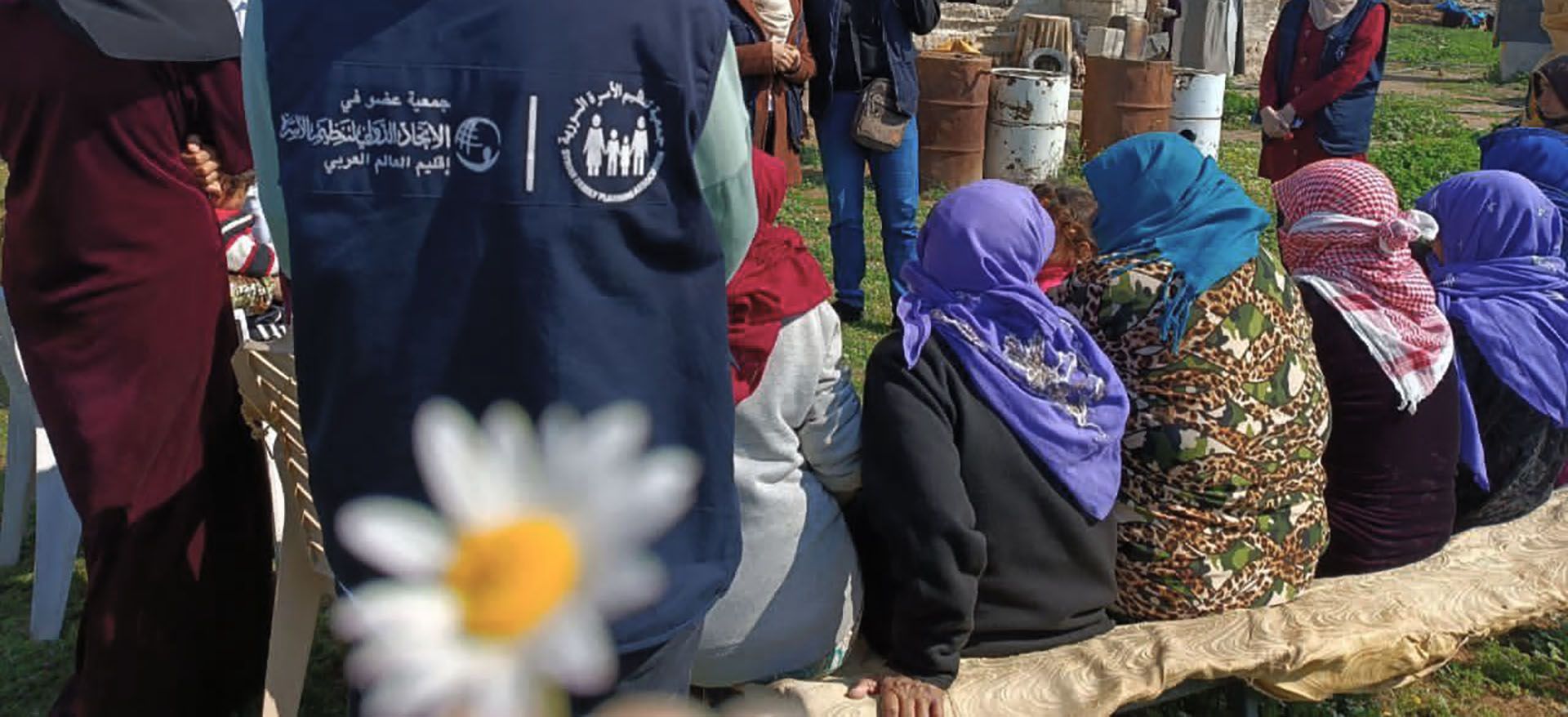
| 11 December 2024
We Must Protect Critical Sexual and Reproductive Health and Rights During Syria's Transition
IPPF remains steadfast in its commitment to supporting its Member Association, the Syrian Family Planning Association (SFPA), in providing essential SRHR services for all. Within the uncertainty and instability, we continue to work together with SFPA to empower communities, protect the rights of women and adolescents, and address the urgent needs of marginalized populations, particularly in the face of increased vulnerability. Our collective mission stands firm: we are committed to ensuring that dignity, health, and choice are accessible to all, regardless of political or social challenges. Even in these uncertain times, we believe that SRHR services must continue - because the need for family planning, maternal healthcare, and gender-based violence (GBV) support does not diminish, even in the midst of conflict. Syria is enduring a difficult period of transition, but sexual and reproductive health cannot be sidelined. The health and well-being of Syria’s most vulnerable populations, especially women and youth, remain a top priority. The work of SFPA is more essential than ever, as it continues to provide vital services such as family planning, postnatal care, and GBV screening. At Al-Hasakah, SFPA is on the frontlines, directly supporting over 5,000 people, the majority of whom are women in urgent need of reproductive healthcare services. These women face an increased risk of complications due to the lack of access to safe and comprehensive health services, but SFPA is committed to meeting their needs. From providing postnatal care to offering family planning options and GBV screenings, SFPA is ensuring that women in these vulnerable circumstances are not forgotten. SFPA’s clinics, such as the one in southern Daraa and the besieged Al-Waer in Homs, have become lifelines, serving as a beacon of hope for those in need. They provide up to 70 beneficiaries a day with crucial services, including health counselling and early marriage awareness. SFPA has faced significant challenges, including the seizing of vehicles and temporary clinic closures in the suburbs of Homs. Yet SFPA's perseverance in delivering SRHR services remains an essential lifeline for the people of Syria. We will continue to stand alongside SFPA in their tireless efforts to safeguard sexual and reproductive health rights, ensuring that every woman, adolescent, and marginalized person has access to the care they deserve. Together, we stand for dignity, health, and choice, even in the face of uncertainty. The challenges are great, but the importance of maintaining SRHR services is immeasurable. Through unwavering dedication, we can support those in need and contribute to a future where everyone has access to the care and rights they deserve. Contact: +44 7918 845944 Image credit: SFPA/Wasim Kashlan
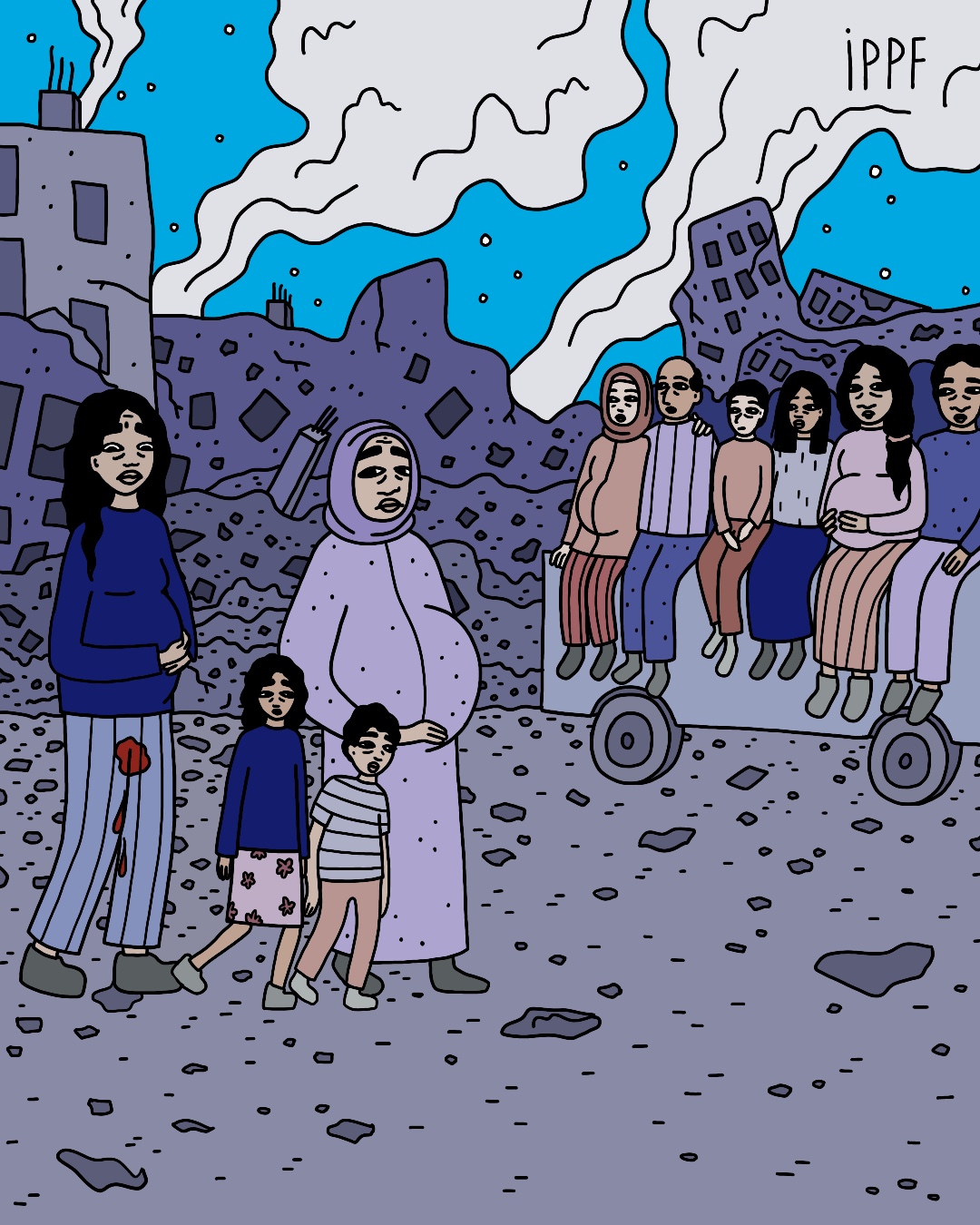
| 09 July 2024
Press Release: Gaza nine months on, pregnant women carry the burden of conflict
Jerusalem, 9 July 2024: Nine months on since the start of the Israeli aggression in Gaza, maternal healthcare is almost decimated. Pregnant, postpartum, and breastfeeding women in Gaza are facing serious health consequences. Miscarriages have risen at least 300% since October last year. One of our own health workers from the Palestinian Family Planning and Protection Association (PFPPA) recently lost her pregnancy due to the stress of the attacks. “I am a healthcare worker with PFPPA, and I have been forced to flee not once, not twice, but six times since the start of the violence, with my husband and three small children. Our home was destroyed by bombing. Whilst I was fleeing from one location to another, I started to unexpectedly bleed. I was able to find a doctor only after reaching Rafah, who confirmed I was miscarrying. I didn’t even realise I was pregnant,” Wafa, our healthcare worker in Gaza, told us. With the starvation being faced by the people in Gaza in addition to the lack of drinking water, our service providers are reporting on daily basis of pregnant women suffering from anaemia, malnutrition and in desperate need of prenatal vitamins and supplements. Our service providers in Gaza are also witnessing many women who are either having premature deliveries or miscarriages. Women of newborns are unable to breastfeed their babies due their own malnutrition and anxiety, while at the same time most families cannot afford milk formula as prices are becoming extremely high - and that is if they can find it in the market. When medical facilities are available, many women are unwilling to leave their shelters to obtain pre- and post-natal care, as they worry if they are separated from their families there will be military attacks and bombings and fear for their and their loved one's fate if they do so. Ammal Awadallah, Executive Director of PFPPA, said: “Nine months on, and a woman who conceived at the start of these hostilities will now be giving birth. But where, how, and what life is that baby entering? This will be a lost generation in Gaza, a generation born into genocide. We’re doing the best we can to offer support to women in Gaza, but the conditions to get aid into Gaza, let alone warehouse supplies, make our jobs extremely difficult. PFPPA has always been committed to women’s health and that doesn’t stop, now or ever.” Over 37,900 people have now lost their lives in Gaza. Women and girls that survive are facing a myriad of challenges; deprived of sexual and reproductive health services, sanitary and hygiene products. We believe every single person and organisation needs to mobilise to end this, by calling on their governments to demand unhindered humanitarian aid access, to demand a permanent ceasefire, and divest from any organisations aiding and abetting Israel’s military campaign against Palestine. We are working in close collaboration with colleagues in Palestine on how best to serve those caught up in the violence, to ensure health workers are safe and able to provide sexual and reproductive health care without threat to life. For more information and to speak to our Executive Director in Palestine, please email [email protected] About the Palestinian Family Planning and Protection Association Established in Jerusalem in 1964, the Palestinian Family Planning and Protection Association (PFPPA) is locally registered as an independent, non-profit and non-governmental association with headquarters in Jerusalem. PFPPA has service delivery points located in the West Bank Areas of Ramallah, Bethlehem, Hebron and Halhoul, in addition to one in the Gaza Strip, which has yet to be relocated after it was destroyed following an Israeli airstrike on 8 October. Furthermore, and in cooperation with local partners, PFPPA is also responsible for three safe spaces to provide Gender Based Violence (GBV) related services in the Jerusalem area. About the International Planned Parenthood Federation IPPF is a global healthcare provider and a leading advocate of sexual and reproductive health and rights (SRHR) for all. Led by a courageous and determined group of women, IPPF was founded in 1952 at the Third International Planned Parenthood Conference. Today, we are a movement of 150 Member Associations and Collaborative Partners with a presence in over 146 countries. Our work is wide-ranging, including comprehensive sex education, provision of contraceptive, safe abortion, and maternal care and responding to humanitarian crises. We pride ourselves on being local through our members and global through our network. At the heart of our mission is the provision of – and advocacy in support of – integrated healthcare to anyone who needs it regardless of race, gender, sex, income, and crucially no matter how remote.
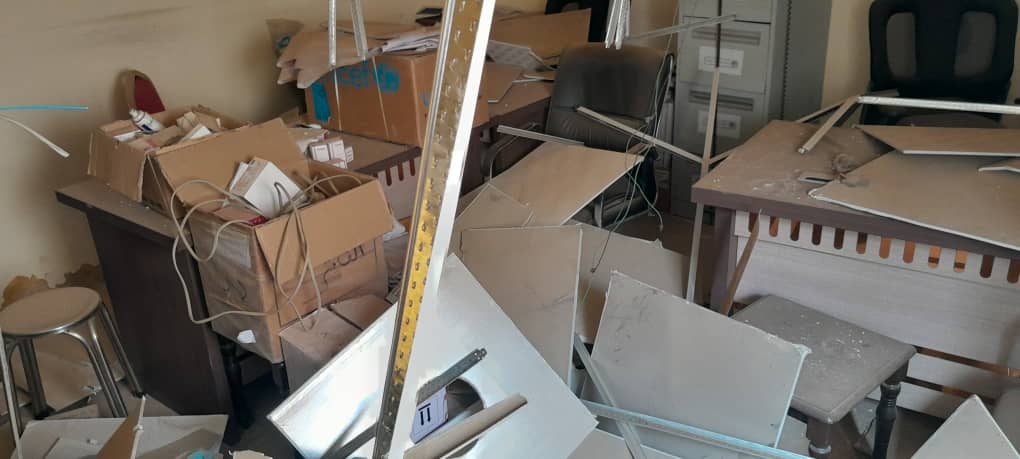
| 02 July 2024
Another of our clinics in Sudan has been attacked, one less safe place for women and girls to get sexual and reproductive healthcare
Haz click aquí para leer este posicionamiento en español. Khartoum, 2 July 2024: Another horrendous attack on one of our healthcare clinics in Sudan has occurred this week. Several staff and volunteers from our Member Association in Sudan, the Sudan Family Planning Association (SFPA), have now been injured or killed by the Rapid Support Forces (RSF). Our clinic in El Fasher has been destroyed, meaning there is one less option for women and girls to receive lifesaving sexual and reproductive healthcare in the region. For over a month, ongoing battles around El Fasher, the capital city of North Darfur, have been taking place.The RSF, who have stationed themselves 10 kilometres from the city, have been indiscriminately shelling military and civilian targets. One of our SFPA volunteers, Mahasen Abdul Jabbar, was killed after being hit by gunshot at the clinic. This morning, Dr Daifallah Mohammed, a volunteer family medicine specialist in our El Fasher clinic, also died as a result of the warfare. The RSF bombardments have also severely injured several of our staff: Dr Marwa, a doctor at the Integrated Centre in El Fasher, was hit by shrapnel in her leg. A midwife at Abu Shouk centre, Halima Abdullah Adam, was hit and four of her children were injured and evacuated. The house of the guard of Abu Shouk centre was hit, killing his daughter and wounding four of his other children. One of our nurses has been hit with shrapnel and has been transferred to hospital and is in critical condition and all contact with her has been lost. The RSF has also been kidnapping our patients, their whereabouts unknown. This latest attack is on top of previous attacks on our clinics in Sudan, which destroyed our facilities in Khartoum and El Fashir and health centres run by SFPA between 7-9 September 2023. Women and girls in Sudan are facing an upsurge in sexual and conflict-related violence. Our staff have witnessed firsthand the impact of this heinous crime on the most vulnerable people, including women, girls and other marginalized groups. We previously reported that rape victims and survivors are struggling to obtain contraception, abortion medication and post-exposure anti-viral medications. They face severe and life-threatening consequences, including loss of family support and homes and shelters and increased risk of suicide. Survivors are afraid to seek medical treatment because of the stigma and fear of reprisals from rape. Fadoua Bakhadda, Regional Director, Arab World Region, said: “We unequivocally condemn all violence against civilians, especially against health centers that are attacked while providing essential services to those in need. Such acts are an affront to humanity and the sanctity of care. The murders, displacement and destruction in Sudan must stop. It is vital that warring parties remember their obligations under International Humanitarian Law, which include ensuring the protection of civilians and the protection of health structures and health personnel.” Dr Alvaro Bermejo, Director-General of IPPF, said: “We are devastated to learn of another attack on one of our clinics in Sudan, and the injuries and loss of lives to our staff and volunteers. Healthcare facilities, and most importantly, healthcare workers, must never be the target of war. The sexual and reproductive health and lives of 800,000 people in North Darfur – including women, children, and people with disabilities – are hanging in the balance as bombing and shelling cause widespread harm to civilians and severely disrupt the essential health services they very much depend on. Now, more than ever, our healthcare facilities must be protected so they can continue to provide care to the populations enduring these needless attacks. Our clinic, which previously was able to provide lifesaving sexual and reproductive healthcare such as prenatal care and contraceptives, is gone. Where will women and girls seek these services now? There must finally be a critical mass of people of conscience saying enough is enough in this forgotten crisis.” For more information and to speak to one of our staff in North Darfur, Sudan, please email [email protected] About the Sudan Family Planning Association The Sudan Family Planning Association (SFPA) was established in 1965 by pioneers in obstetrics and gynaecology in response to increases in maternal, neonatal and infant mortality and morbidity. As the statistics show, Sudan is a country in great need of frontline sexual and reproductive health (SRH) services. Advocacy, and undertaking information, education and communication (IEC) programs are critical. In 2023, SFPA provided 38 million services through 25 clinics, 272 associated clinics, 39 mobile clinics, 1494 CBD/CBS, and digital/Virtual channels. Since the start of the crisis on 15 April 2023, the association teams were successful in providing 8 million services through 25 SDPs and 10 million services through non damaged associated and mobile clinics. SFPA was able to assist 1,183 deliveries under bombardment and provided 170 943 treatments of HIV in its static clinics. About the International Planned Parenthood Federation The International Planned Parenthood Federation (IPPF) is a global healthcare provider and a leading advocate of sexual and reproductive health and rights (SRHR) for all. We are a movement of 150 Member Associations and Collaborative Partners with a presence in over 146 countries. Building on a proud history of 70 years of achievement, we commit to lead a locally owned, globally connected civil society movement that provides and enables services and champions sexual and reproductive health and rights for all, especially the under-served. We advocate for a world where people are provided with the information they need to make informed decisions about their sexual health and bodies. We stand up and fight for sexual and reproductive rights, and against those who seek to deny people their human right to bodily autonomy and freedom. We deliver care that is rooted in rights, respect, and dignity - no matter what.
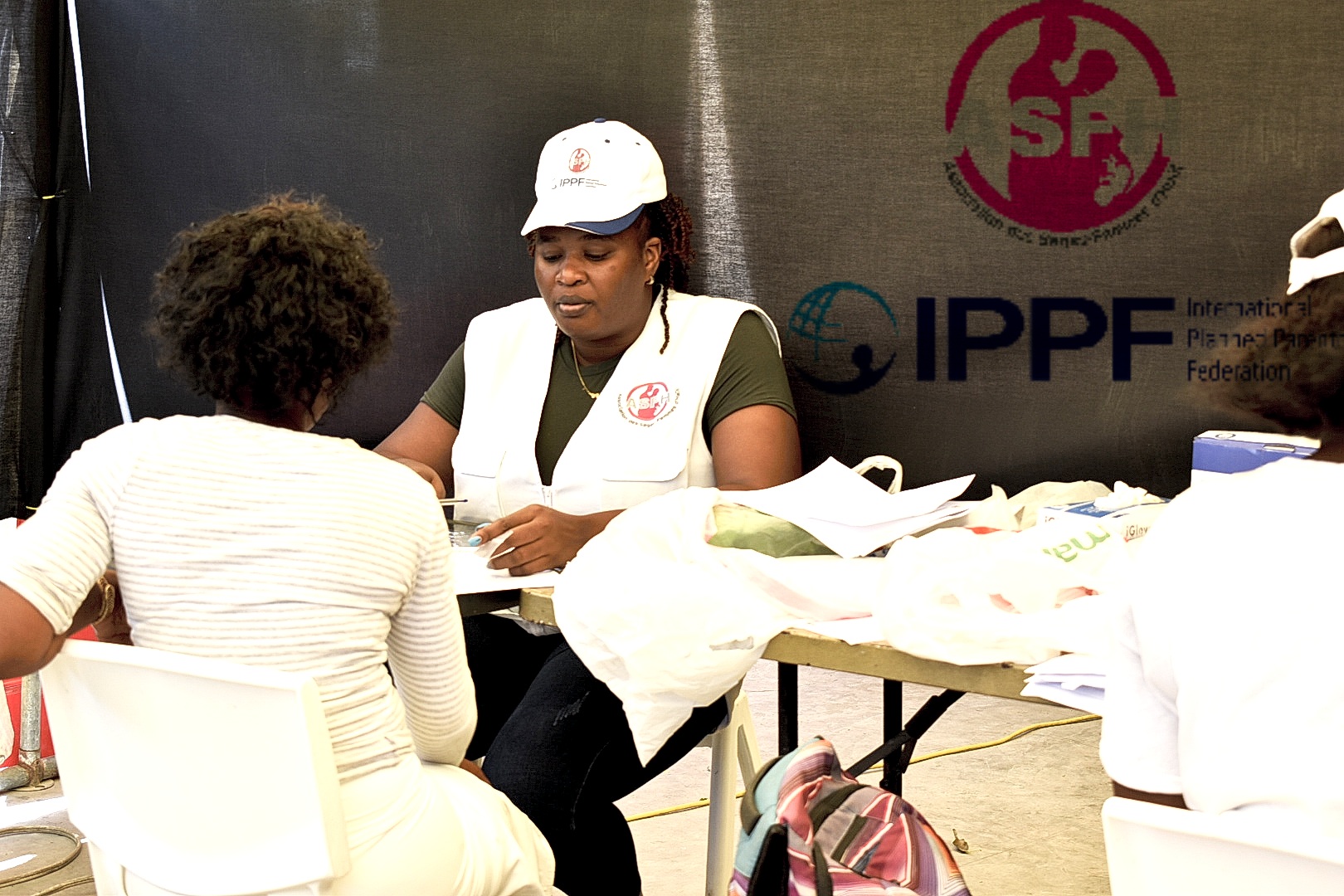
| 19 June 2024
IPPF Statement on the Ongoing Violence in Haiti
Haz click aquí para leer este posicionamiento en español The International Planned Parenthood Federation (IPPF) is deeply concerned about the escalating violence and political instability in Haiti, particularly its disproportionate impact on women and girls since March 2024. This crisis is expected to leave 3,000 pregnant women without essential medical care, leading to nearly 450 women experiencing life-threatening childbirth complications. With almost 580,000 Haitians displaced, women and girls are experiencing an alarming surge in sexual and gender-based violence (SGBV), including rampant sexual assaults, torture, and collective rape by armed groups. From January to March 2024, there were 1,793 SGBV incidents reported. Conflict-related insecurity has also significantly increased negative coping mechanisms, contributing to the rise in SGBV, as well as sexually transmitted infections and HIV. The ongoing violence is preventing access to essential sexual and reproductive healthcare services, endangering the lives of mothers and newborns. Our partner in Haiti, the Haiti Midwives Association, informed us, ‘the gangs prohibit the movement of motorcycles and pedestrians, threatening and sometimes shooting in the air to terrorise us further. Due to these difficult conditions, fewer and fewer patients are attending the hospital, whether for prenatal consultations, deliveries or postnatal care.” This inaccessibility has led to a significant increase in maternal and infant mortality. Eugenia López Uribe, Regional Director of the IPPF Americas & the Caribbean, said, “Humanitarian aid must be granted access through local organisations, such as our partner the Haiti Midwives Association, and their wellbeing must be guaranteed in this process. Women and girls can no longer wait! Our partner has provided access to vital emergency services such as pregnancy, childbirth and postpartum care, as well as care after sexual violence for 20 years. However, since February, they have been forced to stop their activities because of the imminent risks they face as women living in Port-au-Prince and surrounding areas.” On this International Day for the Elimination of Sexual Violence in Conflict, IPPF calls for zero tolerance toward any form of SGBV and demands the immediate protection of Haitian women, children, and those most at risk. We strongly call for unhindered humanitarian access to allow aid into Haiti. This aid must be designed and controlled by local NGOs and aid workers, and any foreign peacekeepers must safeguard and protect local communities - in particular their sexual and reproductive rights - so mistakes of the past are not repeated. Let’s not forget: Haiti's poverty and instability has been shaped by decades of foreign occupation and colonialism. The international community owes Haiti more than mere condolences; they owe an unwavering commitment to a future where human rights, including sexual and reproductive health rights are respected and protected, and nobody is left behind.
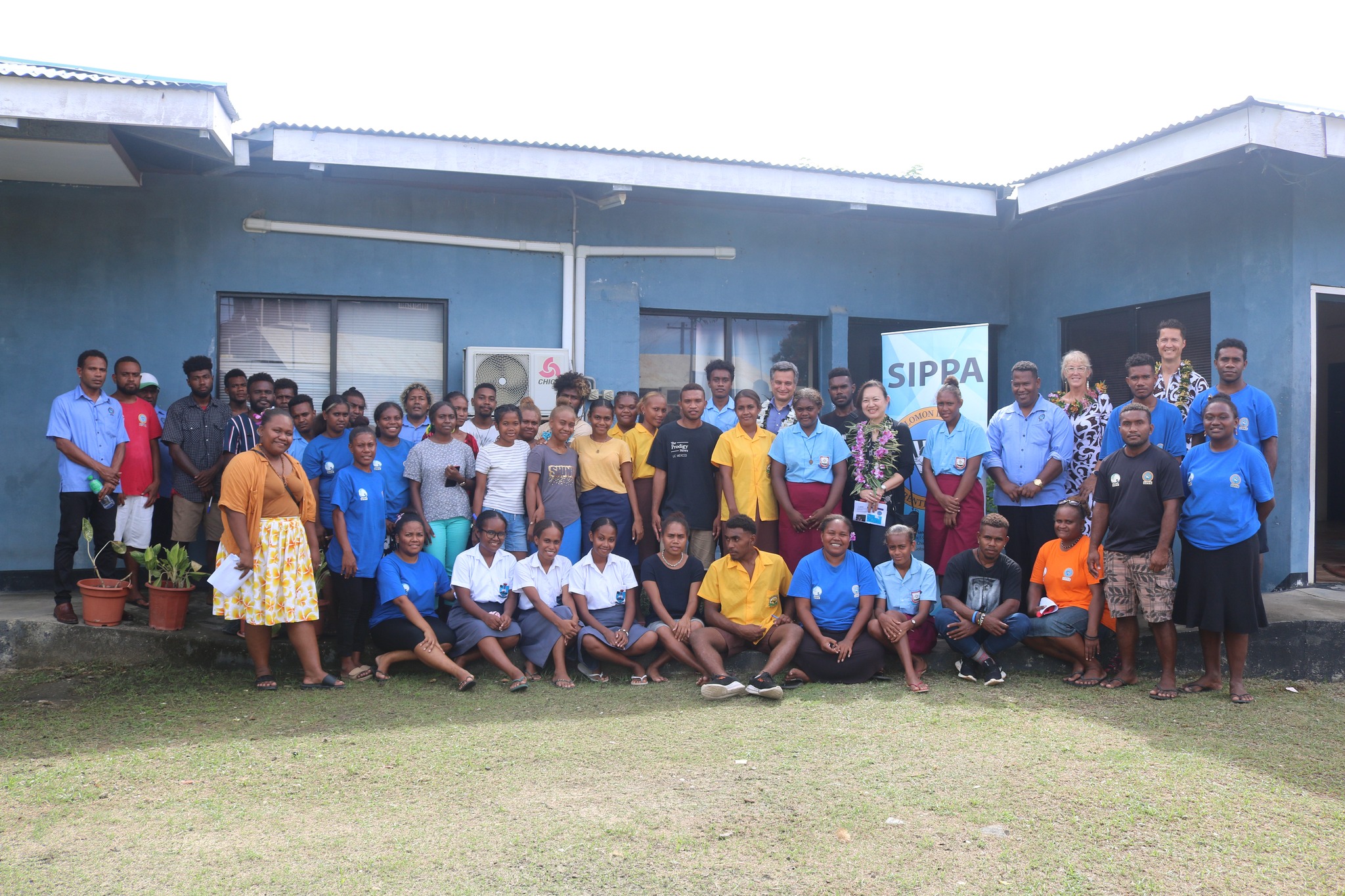
| 28 March 2023
IPPF’s Director General Visits Solomon Islands and Australia
The Director General of the International Planned Parenthood Federation (IPPF), Dr Alvaro Bermejo, is in Australia this week for high level meetings with Australian Government Ministers and the Australian Department of Foreign Affairs and Trade (DFAT). He is joined by Ms Tomoka Fukuda, Regional Director of IPPF’s East and Southeast Asia and Oceania Region (ESEAOR) and Ms Phoebe Ryan, IPPF’s Chief of the Australia and New Zealand Office. In Australia, Dr Bermejo has been privileged to meet with Australia’s Minister for International Development and the Pacific, the Hon Pat Conroy. Together, they discussed how Australia can play a leadership role in advancing sexual and reproductive health and rights through Australia’s international development cooperation. Last week, Dr Bermejo and Ms Fukuda visited IPPF’s Member Association in Solomon Islands, the Solomon Islands Planned Parenthood Association (SIPPA). In Solomon Islands, they witnessed SIPPA’s life-saving and critical work delivering sexual and reproductive healthcare on the ground, including mobile outreach in remote communities of Malaita Province. Australia has been a long-standing and critical partner to IPPF, supporting programming to reach women, girls, and marginalized groups across the development–humanitarian continuum around the world, with a particular focus on the Asia Pacific. In December 2022, IPPF and DFAT signed a new four-year global funding agreement for 2023 to 2026, part of which includes dedicated support to programming across the Pacific. AUD 19 million is dedicated as global funding towards the delivery of IPPF’s Strategy 2028, along with a further AUD 5.7 million to support the delivery of IPPF’s Pacific Niu Vaka Strategy, Phase 2. This generous investment will enable IPPF to reach an anticipated 1.8 million people in the Pacific over the next six years with 4.2 million essential sexual and reproductive services. IPPF is proud to stand alongside our Pacific MAs as they continue to advocate for the health and rights of those most underserved and excluded, reaching communities with essential information and high quality, person-centred sexual and reproductive health care. In 2021, IPPF reached over 72 million people around the world with more than 155 million sexual and reproductive health services and contributed to 121 policy and legislative changes in defence of SRHR. IPPF is grateful for Australia’s ongoing support in enabling this impact. IPPF’s Director General, Alvaro Bermejo shared: “IPPF are delighted to be working with the Australian Government to continue improving the sexual and reproductive health and rights (SRHR) of women and girls across the globe. We are grateful to them for helping us deliver more services and support at a time when inequalities are deepening, the opposition is growing, and humanitarian crises continue to place the lives of millions, particularly women and girls, at risk. As we look to build the future with our new strategy, continued support from global partners is crucial to achieving a world where everyone has access to sexual and reproductive healthcare. We hope DFAT’s strong global commitment will inspire other global leaders to take action.” For media enquiries, please contact Karmen Ivey on [email protected] or Phoebe Ryan on [email protected] About the International Planned Parenthood Federation The International Planned Parenthood Federation (IPPF) is a global service provider and advocate of sexual and reproductive health and rights for all. For 70 years, IPPF has delivered high-quality sexual and reproductive healthcare and helped advance sexual rights, especially for people with intersectional and diverse needs that are currently unmet. Our Member Associations and partners are independent organizations that are locally owned, which means the support and care they provide is informed by local expertise and context. We advocate for a world where people are provided with the information they need to make informed decisions about their sexual health and bodies. We stand up and fight for sexual and reproductive rights and against those who seek to deny people their human right to bodily autonomy and freedom. We deliver care that is rooted in rights, respect, and dignity - no matter what.

| 03 March 2022
Statement on the growing humanitarian crisis in Ukraine
Over the past few days, the world has watched in horror and disbelief at the events unfolding in Ukraine. It is estimated that over 500,000 people have now fled – many of whom are women and children – into neighbouring countries such as Poland, Hungary and Romania. The UN anticipates 4 million refugees by July 2022. During Humanitarian crises, sexual and reproductive healthcare is often overlooked. But the reality is daily sexual and reproductive healthcare needs such as essential care for pregnant people, access to menstruation products for people who menstruate, as well as ensuring people who need sexual and reproductive health assistance have access to the right information, remains an urgent priority. IPPF is working with partners on the ground in Poland to link those fleeing the conflict with critical sexual and reproductive health services as well as provide them with essential items. Julie Taft, Director of Humanitarian for the International Planned Parenthood Federation, said "As we mark one week since the invasion of Ukraine, the complex humanitarian situation has become even more apparent. Right now, millions across the country are fighting for their survival, while food, medical supplies and essential hygiene products run dangerously low, including equipment needed to provide life-saving sexual and reproductive healthcare. The destruction of healthcare infrastructure also means that women are forced to deliver their babies in bomb shelters. At the same time, sick and vulnerable new-borns must receive care in the basements of hospitals. "In response to the growing humanitarian crisis, the International Planned Parenthood Federation has partnered with the All-Poland's Women's Strike, a Polish women's rights movement currently supporting people displaced by the war. The $50,000 USD grant will go towards dignity kits, consisting of basic hygiene supplies, menstrual-hygiene products, blankets, food, diapers and baby clothes. Items will be distributed to Ukrainians who have fled into Poland as well as transported cross-border into Ukraine. The funds will also support the All-Poland's women's strike to link refugees who have crossed the Ukraine-Poland border with essential healthcare services. "IPPF is proud to partner with such a brave and unyielding organisation on the frontline and will continue to work closely with other NGOs to facilitate care for those who need it most. However, NGOs cannot operate efficiently without the support of the international community, which must guarantee the safe passage of humanitarian aid into Ukraine. The urgent need for unhindered humanitarian access is especially significant for unaccompanied minors and those left behind, who are often the most vulnerable populations and who will require distinct care during this tragic situation." Marta Lempart, Founder of the All-Poland Women's Strike, said: "We are deeply committed to helping displaced people flee the invasion of our neighbour, Ukraine. Our teams across Poland are working around the clock to support vulnerable people crossing both at the border, including unaccompanied minors at-risk of trafficking and those left behind or heading back to Ukraine. Both groups will require personalised care and support. "We are pleased to partner with the International Planned Parenthood Federation, so we can continue delivering dignity kits to those who need them most; for displaced people arriving with just the clothes on their back, access to even simple necessities are a lifeline. We are also thankful for the outpouring of support from across Europe - the funding will help care for exhausted families who have made it safely across the border, covering transport, rent, bills and other expenses as they begin to build their futures outside of Ukraine. "Disasters reinforce, perpetuate, and increase existing inequalities, making bad situations even more tragic and resulting in consequences that will carry down for generations. But with the international community's support, we can ensure that organisations like Women's Strike and IPPF are there for people every step of the way." Click here if you would like to donate to IPPF's Ukraine Appeal. For media enquiries, please contact Karmen Ivey on [email protected] or [email protected]
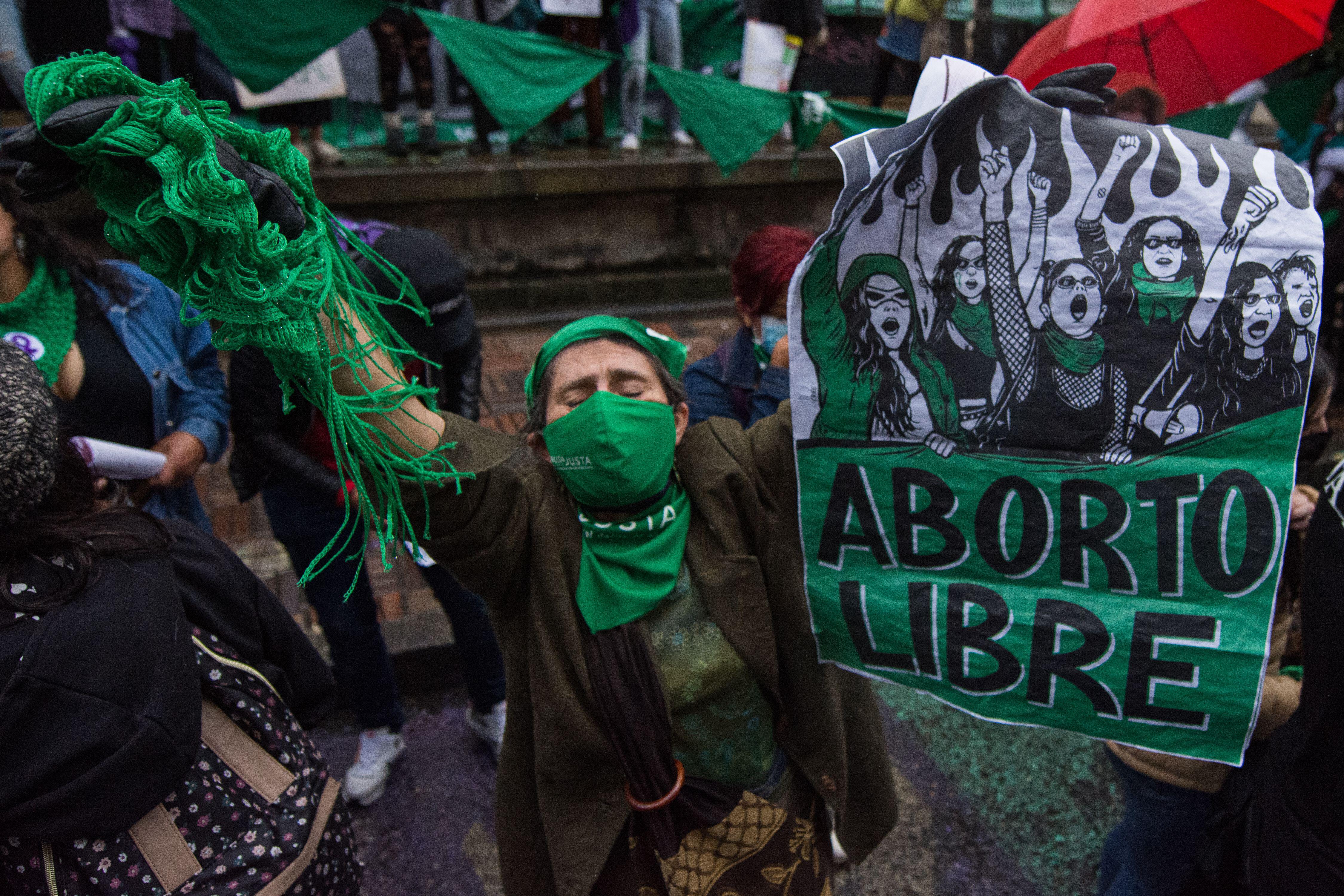
| 22 February 2022
Colombia decriminalizes abortion
Today, the Colombian Constitutional Court decriminalized abortion up to 24 weeks in another victory for the Green Wave sweeping through Latin America. The historic decision follows years of campaigning by women's right's activists across Colombia and came off the back of two lawsuits that asked the court to declare article 122 of the penal code, that "the woman who causes her abortion or allows another to cause it, will incur a prison sentence from sixteen (16) to fifty-four (54) months" as unconstitutional. The court called an extraordinary meeting today, Monday 21st February, and took just a few hours to come to its decision which will go into effect immediately. ProFamilia, the International Planned Federation's Member Association in Colombia, and Colombia's largest provider of legal abortion care were heavily involved in pushing to extend the rights of those needing to access abortion care. Marta Royo, Executive Director for Profamilia, IPPF's Member Association in Colombia, said: "Today is a ground-breaking moment for the people of Colombia and a long-overdue guarantee of reproductive rights and dignity for all those who need abortion care, especially poor and rural women who bear the brunt of restrictive abortion policies. "The decriminalization of abortion up to 24 weeks in Colombia and the Green Wave movement across Latin America is centred not just on public health, but also the full lives, citizenship and human rights of girls, adolescents, and women – who, for multiple reasons, including inequity, access to education, gender-based violence and barriers to healthcare – continue to face unintended pregnancies. "The freedom for women to finally make their own choices about their pregnancies and their bodies is fundamental to disrupting the cycle of poverty that so many in Colombia face. This monumental decision is also a win for the dedicated health care providers, who will finally be recognized as people who simply care about the needs of others." While Colombian women have supposedly been able to access abortion care since 2006 under three circumstances: if their life or health is at risk, in cases of fatal foetal abnormalities, or if the pregnancy is the by-product of rape or incest, in reality, the criminalization of abortion persisted. The Guttmacher Institute found that less than one per cent of the estimated 400,000 abortions carried out each year in Colombia are performed legally, with women, especially poor, rural, vulnerable and marginalized women, facing significant barriers to accessing safe and timely abortion care. Many Colombian women are instead forced to carry their pregnancies to term or else seek other methods to end them. Figures collected by ProFamilia showed that during 2020, there were at least 26,223 unsafe abortions across Colombia, a startling amount for which consequences range from infection to life-changing injuries to death. As per the previous abortion law, other women have been imprisoned for up to four and a half years for having an abortion, even in cases where abortion should have been legal. In a shocking example of discrimination, data collected showed that poor rural women were more likely to be charged, with a third of those who faced charges also survivors of sexual violence. Eugenia Lopez Uribe, IPPF's Regional Director for Americas and the Caribbean Region, said: "Today Colombia took another step in the right direction for gender equality and full human rights for all, and we are incredibly proud of IPPF's Member Association, ProFamilia, for their tireless work alongside thousands of activists across Colombia and Latin America "This 24-week decriminalization is historic in the region and especially remarkable when we consider the current fragility of abortion rights globally and the anti-choice movements which continue to plague nations across the world, including in countries close to home like the United States of America. "While today we are celebrating this historic decision, the Green Wave is strong and growing, and the fight for reproductive rights and justice will not end until every person can access high-quality sexual and reproductive healthcare when and where they need it." For media enquiries in English, please contact Karmen Ivey on [email protected] or [email protected] For media enquiries in Spanish or during UK night-time hours, please contact Pamela Martin Garcia on [email protected]
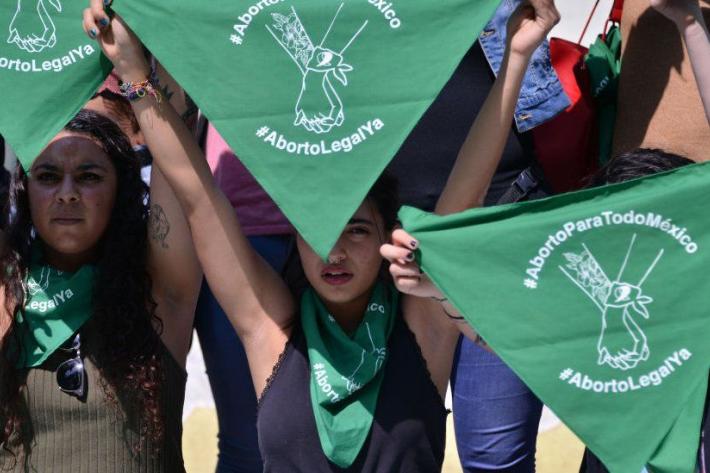
| 21 February 2022
Mexico’s Supreme Court votes to decriminalize abortion
The International Planned Parenthood Federation (IPPF) welcomes the unanimous decision taken by the Supreme Court of Mexico to decriminalize abortion. The decision is a step closer for women and pregnant people to fully exercise their reproductive rights and bodily autonomy through safe and legal abortion care. Abortion is legal in four out of the 32 federal entities in Mexico. Only four other countries in the region - Argentina, Cuba, Uruguay, and Guyana have almost unrestricted and legal access to abortion care. Eugenia Lopez Uribe, IPPF’s Regional Director for the Americas and Caribbean said: “This historic ruling by the Supreme Court of Mexico is thanks to the feminist movement in Mexico and in the region, who have been relentless in their fight the law to recognize the dignity and humanity of people seeking abortion care. This decision will continue the Green Wave ripple effect across the region - we look at Argentina last year and now Mexico, these movements give us hope and motivation to continue to fight for sexual and reproductive health and rights for all.” Esperanza Delgado, Strategic Director for Advocacy and Interinstitutional Relations of MEXFAM added: “September 7 will become a memorable date in Mexico. In a progressive pronouncement in favour of reproductive autonomy, respect for the secular State, and the rights of women and pregnant people over those of the embryo, Mexico's highest legal authority indicated that it is unconstitutional to punish those who decide to terminate a pregnancy at its early stage. “All of us who have joined forces and who are fortunate enough to fight for the recognition of human rights, should be proud and may our achievement inspire others in every corner of the planet. MEXFAM is committed to making this long-awaited legislation a reality for every person that decides to choose.” For media inquiries please contact [email protected]
















